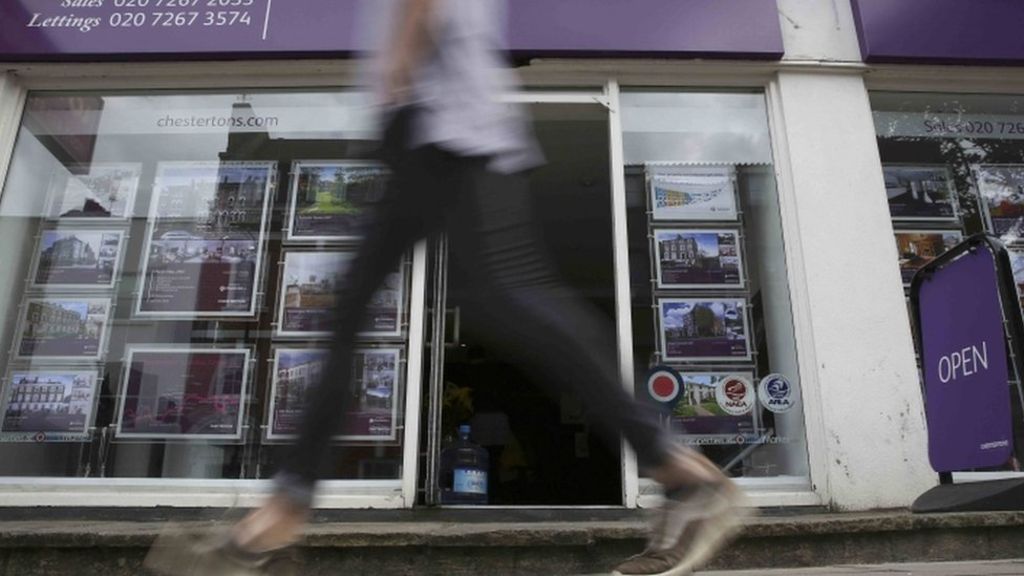Or use the form below
Shelter: More than four in 10 homes fail acceptable standards – BBC News

 Image copyright Reuters
Image copyright Reuters More than four in 10 homes in Britain do not reach acceptable standards in areas such as cleanliness, safety and space, housing charity Shelter says.
Shelter’s Living Home Standard covers affordability, decent conditions, stability, space and neighbourhood.
It said affordability was the biggest problem, and people should “live and thrive” in homes, not just “get by”.
The government said housing was an absolute priority and its affordable housing budget was doubling.
Shelter and Ipsos MORI developed the Living Home Standard through a series of workshops and surveys with the public, with support from British Gas.
The measurement of homes meeting the standard was calculated based on results from a survey of 1,961 adults across Britain.
Each of the five elements in the standard is measured according to certain criteria – for example, the essentials of “space” include having sufficient bedrooms for the household and space for the whole household to spend time together in the same room.
Other aspects included having outdoor space, and enough space for children to study and adults to work.
The Living Home Standard is different to the government’s Decent Homes Standard introduced in 2005.
‘I don’t want to die here’
Pensioners Ian and Esmee Woolcomb, aged 62 and 72, have lived in their cramped one-bedroom flat in Bristol for 10 years.
Their home fails three of the five Shelter standards and it has no living room.
Ian says the flat is “dark and damp” and “gets cold quickly, so we have to put the heating on quite often”.
They are desperate to move and have written several letters to the council with no success.
“I was quite hopeful at first but now I’m thinking ‘Oh my God. I don’t want to die here,'” Esmee said.
“I get very depressed about it when I think about it.”
‘It’s degrading’
Office worker Claire Miles lives in her mother Leeza’s house in Harefield, Middlesex – which she also shares with her two young sons, her brother Alan and her mum’s partner, Jim.
Every night Claire and her sons, aged one and four, have to sleep on the living room floor.
She said: “It would be nice to have a bit of privacy, some self-respect, because I just feel like we get really low. It’s degrading.”
Claire grew up in the area but is disqualified from applying for council housing because she spent a couple of years living at a friend’s house just outside the borough.
She says renting privately is too expensive. “It’s a lot of money – six months’ rent up front, when you think it’s 1,300 a month for rent.
“Now the landlords have changed the rules anyway and said no-one wants tenants with housing benefit, but I would need part housing benefit to help me pay for it.”
The five elements
 Image copyright PA
Image copyright PA - Affordability: Factors cited included how much was left for essentials, savings and social activities after paying for rent or mortgage
- Decent conditions: Words like “safe”, “warm” and “secure” were among the words used by the public to describe what makes a home meet this criterion
- Space: Adequate space was felt to be crucial for wellbeing, especially mental and social wellbeing
- Stability: Stability was often described as the extent to which people felt they could make the property they lived in a “home”
- Neighbourhood: Living in an area where people felt safe and secure was considered particularly important. People also wanted to be close enough to work, family and friends and the services they need
‘Cutting back on food’
Shelter’s survey suggested that, overall, 43% of homes in Britain did not meet at least part of its standard.
Of the five criteria, affordability was consistently rated as the most important aspect of an acceptable home and 27% of homes failed at least one of the affordability specifications.
Shelter said 24% of people were not able to save anything for unexpected costs after meeting their rent or mortgage, and 23% worried that their rent or mortgage charges might become difficult to pay if they rose.
A further 18% of people could not meet their housing costs without regularly cutting back on essentials like food or heating, and 20% could not do this without missing out on social activities, the charity said.
Nearly one in five, or 18%, of homes failed the criteria for decent conditions, with renters twice as likely as homeowners to live in places which fail on this element of the standard.
Looking at the other parts of the Living Home Standard, more than one in 10 people lived in homes which failed criteria for space.
Renters in social housing fared particularly badly on space, with one in five living in homes with inadequate space.
On stability, one in four private renters felt they did not have enough control over how long they could stay in their home.
Shelter has called for stable rental contracts that last for five years and protect tenants against unaffordable rent increases.
‘Absolute priority’
Shelter chief executive Campbell Robb said: “It’s heart-breaking to think that so many people are having to make a choice between paying the rent and putting food on the table, or living in fear that any drop in income would leave them unable to cover their housing costs.
“The sad truth is that far too many people in Britain right now are living in homes that just aren’t up to scratch – from the thousands of families forced to cope with poor conditions, to a generation of renters forking out most of their income on housing each month and unable to save for the future.”
He called on the government, business and other charities to work with the organisation to increase the number of homes that meet the Living Home Standard.
A Department for Communities and Local Government spokesman said: “Good quality housing is an absolute priority for this government and more than a million sub-standard properties have been brought up to standard since 2010.
“We’ve also set out the most ambitious vision for housing in a generation, doubling the affordable housing budget to 8bn to deliver 400,000 more quality homes,” he added.
What’s your experience of housing? Do you recognise the problems highlighted by Shelter? You can email haveyoursay@bbc.co.uk with your experiences.
Please include a contact number if you are willing to speak to a BBC journalist. You can also contact us in the following ways:
- Whatsapp: +44 7525 900971
- Send pictures/video to yourpics@bbc.co.uk
- Upload your pictures/video here
- Tweet: @BBC_HaveYourSay
- Send an SMS or MMS to 61124 or +44 7624 800 100
Read more: http://www.bbc.co.uk/news/uk-37655908